Filter by
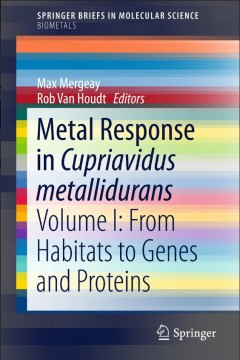
Metal Response in Cupriavidus metallidurans:Volume I: From Habitats to Genes …
This book is the first volume of a two-volume set summarizing 40 years of key research findings directly related to metal-resistant Cupriavidus/Ralstonia (Betaproteobacteria). In this first volume, the historical and geographical context of these bacteria, which are mostly found in industrial and polluted environments linked to zinc and other non-ferrous metallurgy, is sketched to illustrate th…
- Edition
- 1
- ISBN/ISSN
- 978-3-319-20593-9
- Collation
- IX, 89
- Series Title
- SpringerBriefs in Molecular Science
- Call Number
- -
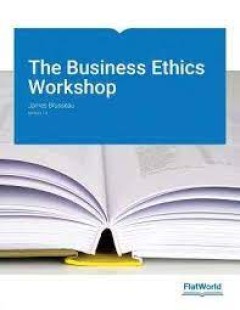
The Business Ethics Workshop
- Edition
- -
- ISBN/ISSN
- -
- Collation
- -
- Series Title
- -
- Call Number
- 330 BRU b
- Edition
- -
- ISBN/ISSN
- -
- Collation
- -
- Series Title
- -
- Call Number
- 330 BRU b
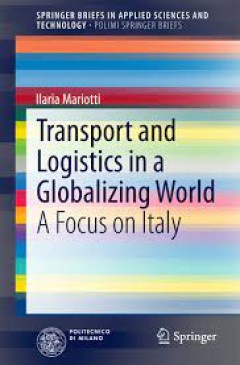
Transport and Logistics in a Globalizing World
Globalization of the economy, fragmentation of the production process, increasing externalization of TNCs activities through their global value chains and the widespread adoption of Just-in-Time have increased the flows of raw materials, intermediate goods and finished products, with a direct effect on the transport and logistics industry. This industry, indeed, plays a key role in connecting t…
- Edition
- 1
- ISBN/ISSN
- 978-3-319-00011-4
- Collation
- XVI, 92
- Series Title
- SpringerBriefs in Applied Sciences and Technology
- Call Number
- -
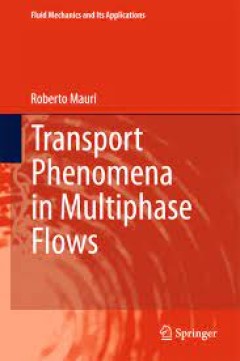
Transport Phenomena in Multiphase Flows
This textbook provides a thorough presentation of the phenomena related to the transport of mass, momentum and energy. It lays all the basic physical principles, then for the more advanced readers, it offers an in-depth treatment with advanced mathematical derivations and ends with some useful applications of the models and equations in specific settings. The important idea behind the book is …
- Edition
- 1
- ISBN/ISSN
- 978-3-319-15792-4
- Collation
- XV, 459
- Series Title
- Fluid Mechanics and Its Applications
- Call Number
- -
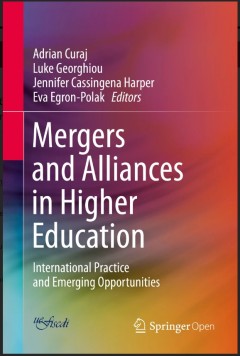
Mergers and Alliances in Higher Education:International Practice and Emerging…
This volume casts light on mergers and alliances in higher education by examining developments of this type in different countries. It combines the direct experiences of those at the heart of such transformations, university leaders and senior officials responsible for higher education policy, with expert analysts of the systems concerned. Higher education in Europe faces a series of major c…
- Edition
- 1
- ISBN/ISSN
- 978-3-319-13134-4
- Collation
- XXI, 307
- Series Title
- -
- Call Number
- -
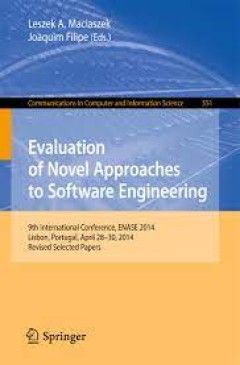
Evaluation of Novel Approaches to Software Engineering
The 11 full papers presented were carefully reviewed and selected from 58 submissions. The papers reflect a growing effort to increase the dissemination of new results among researchers and professionals related to evaluation of novel approaches to software engineering. By comparing novel approaches with established traditional practices and by evaluating them against software quality criteria,…
- Edition
- -
- ISBN/ISSN
- 978-3-319-27218-4
- Collation
- 44 illustrations in colour
- Series Title
- -
- Call Number
- -
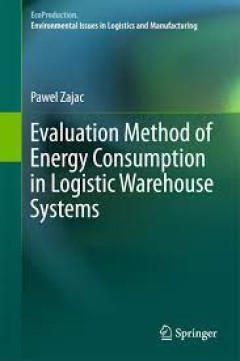
Evaluation Method of Energy Consumption in Logistic Warehouse Systems
This book focuses on guidelines for reducing the energy consumption in warehousing processes. It presents a model of formal assessment for energy consumption in the context of storage-system logistics, as well as a computational model consisting of three sub-models: energy consumption models for forklifts and stacker cranes, respectively, and an energy intensity model for roller conveyors. The …
- Edition
- -
- ISBN/ISSN
- 978-3-319-22044-4
- Collation
- 19 b/w illustrations, 26 illustrations in colour
- Series Title
- -
- Call Number
- -
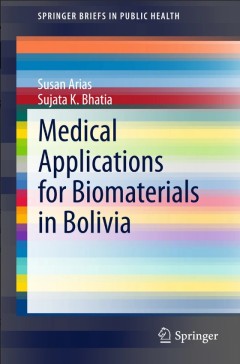
Medical Applications for Biomaterials in Bolivia
This book investigates the potential medical benefits natural biomaterials can offer in developing countries by analyzing the case of Bolivia. The book explores the medical and health related applications of Bolivian commodities: quinoa, barley, sugarcane, corn, sorghum and sunflower seeds. This book helps readers better understand some of the key health concerns facing countries like Bolivia a…
- Edition
- 1
- ISBN/ISSN
- 978-3-319-16774-9
- Collation
- X, 62
- Series Title
- SpringerBriefs in Public Health
- Call Number
- -
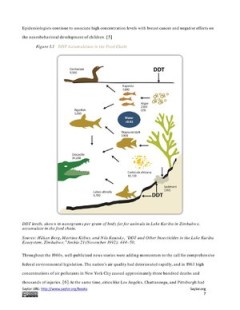
Sustainability, Innovation, and Entrepreneurship
This book is suited for the Entrepreneurship or Innovation course with an emphasis on Sustainability or for a course devoted entirely to Sustainability.What are the trends and forces underlying the changing character of the business-environment relationship? How they are creating significant entrepreneurial opportunities for individuals and companies? Around the world, the movement toward ”su…
- Edition
- -
- ISBN/ISSN
- -
- Collation
- -
- Series Title
- -
- Call Number
- 338.04 SUS
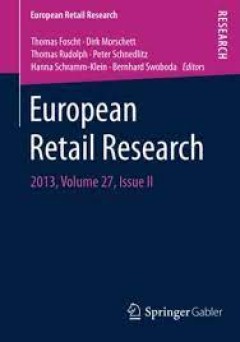
European Retail Research 2013, Volume 27, Issue II
The aim of EUROPEAN RETAIL RESEARCH is to publish interesting manuscripts of high quality and innovativeness with a focus on retail researchers, retail lecturers, retail students and retail executives. As it has always been, retail executives are part of the target group and the knowledge transfer between retail research and retail management remains a part of the publication’s concept. EUROP…
- Edition
- -
- ISBN/ISSN
- 978-3-658-07038-0
- Collation
- 17 b/w illustrations
- Series Title
- -
- Call Number
- -
 Computer Science, Information & General Works
Computer Science, Information & General Works  Philosophy & Psychology
Philosophy & Psychology  Religion
Religion  Social Sciences
Social Sciences  Language
Language  Pure Science
Pure Science  Applied Sciences
Applied Sciences  Art & Recreation
Art & Recreation  Literature
Literature  History & Geography
History & Geography